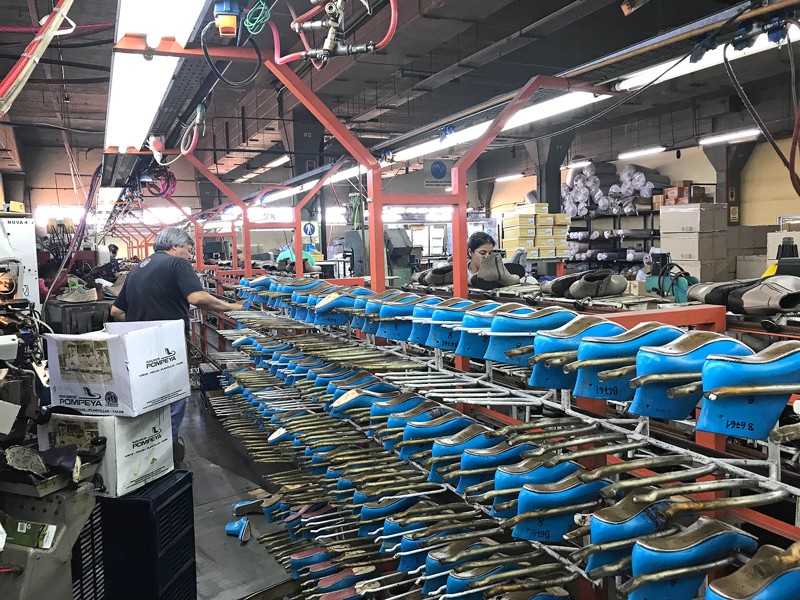Argentina’s footwear industry is facing a deep crisis, driven by a decline in domestic consumption and a rise in imports. The latest reports indicate a critical situation, with layoffs, furloughs, and company closures.
Drop in consumption
Footwear sales have suffered a significant slump, with figures from the
Cámara de la Industria del Calzado de Buenos Aires reporting declines of up to 50% compared to the previous year. This is attributed to the loss of consumers’ purchasing power, who are prioritizing essential expenses such as food and services.
Rise in imports
The current import liberalization policy has enabled greater inflow of finished products, especially from Brazil, China, Indonesia, and Vietnam. Domestic production has been hit by the “unfair competition” of these imported goods, which are cheaper than those manufactured locally.
Impact on employment
The crisis has triggered mass layoffs and furloughs in several factories nationwide. It is estimated that thousands of direct and indirect jobs are at risk. Some companies have drastically reduced their workforce, while others have halted production. According to
UTICRA, the union representing footwear workers, more than 15,000 jobs were lost between 2024 and mid-2025.
Idle capacity
The sector is operating far below its potential. A large portion of factory machinery remains idle due to a lack of orders.
Emergency proposals
In response to the severity of the situation, a bill has been introduced to declare a 180-day state of emergency for the textile and footwear sectors. The initiative aims to halt imports, suspend layoffs, and freeze utility rates for companies in the sector.
Company-level situation
From large manufacturers to SMEs, many companies are suffering the consequences of the crisis. Some have taken drastic measures, such as staff reductions, to maintain operations.
Outlook
The prevailing feeling in the sector is one of uncertainty, impatience, and concern, as no political or economic measures are in sight to ease this serious situation. If it continues, the consequences could be unpredictable. For now, it is a matter of “waiting,” but many industrialists warn that time is running out.


